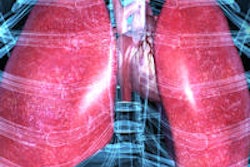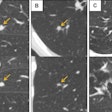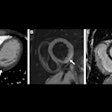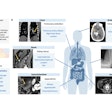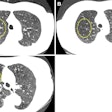Adding genetic information to the cancer risk profiles of current and former smokers reclassifies their risk in more than 25% of cases, according to a study to be presented at the American Thoracic Society (ATS) 2015 meeting in Denver.
Early findings also suggest that individuals whose genetic profiles put them at greatest risk for lung cancer are more likely to adhere to follow-up CT scans during screening.
The study from El Camino Hospital in Mountain View, CA, follows up on trends from the 2011 National Lung Screening Trial (NLST), which screened more than 53,000 individuals with CT; those who received CT screening had a 20% lower risk of dying than those who underwent only chest radiography.
Investigators looked at 157 current or former smokers older than 50 years with at least a 20 pack-year history of smoking who were followed for a mean of 2.4 years. Along with CT screening, the subjects were given a gene-based risk assessment that involved a mouth swab and a simple questionnaire. The participants were sorted in three risk categories: moderate, high, and very high.
The genetic results contributed to overall lung cancer risk in 88% of participants, higher than age in 68% of participants or self-reported chronic obstructive pulmonary disease (COPD) in 15%. Genetic risk was the sole source of risk assignment in 18% of participants, and adding genetic scores to the clinical risk score reassigned 28% of screening participants into different risk categories.
Overall adherence to the screening protocol was 63%, but it was 71% in the very high risk category and 52% in the high- and moderate-risk categories. The difference between the very high risk and high- and moderate-risk categories was statistically significant (odds ratio = 2.3, p < 0.05). At the same time, there was no evidence that lower risk results demotivated participants.
Implementing successful CT screening requires the timely screening of participants, according to a press release from ATS. Prior studies have shown that lung cancer screening compliance is improved in the context of risk assessment; however, this study is the first to report on the effects of gene-based risk assessment and screening compliance.
Outside of strictly controlled clinical trials, adherence is typically limited to 50% to 60%, lead author Dr. Robert Young, PhD, associate professor of medicine and molecular genetics at the University of Auckland, said in the release.
This study shows that assessment using personal genetic information is of great interest to screening participants and appears to improve their compliance with screening, Young said.






